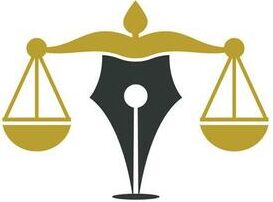Estate planning and administration are often elusive topics. They are shrouded in misconceptions and vague legal jargon.
However, understanding the significance of a well-thought-out estate plan is crucial. This is whether you’re a high-net-worth individual or just starting to accumulate assets.
In this in-depth exploration, we’ll dissect the components of estate planning and administration. We’ll discuss how you can maximize the value of your estate.
So, read on!
Asset Protection
Asset protection involves safeguarding your assets from potential risks or threats, such as:
- lawsuits
- creditors
- taxes
Asset protection strategies can range from simple measures. This can include insurance policies to more complex structures like trusts and family limited partnerships.
These tools allow you to transfer ownership of assets while still retaining control over them. It’s important to note that asset protection should not be seen as a means to evade taxes or creditors. Instead, it is a way to ensure the longevity and stability of your assets for future generations.
Any estate planning firm will tell you that asset protection is a key component of a comprehensive estate plan. It not only protects your assets but also ensures their smooth transition to your beneficiaries.
Distribution of Assets
Another crucial aspect of estate planning is determining how your assets will be distributed after you pass away. This involves creating a will. The will outlines who will receive your assets and how they will be distributed.
Having a will is essential. This is because it ensures that your wishes are carried out and prevents potential conflicts among family members. Without a will, the distribution of assets will be determined by state laws. And, it may not align with your preferences.
In addition to a will, other legal documents like trusts can also be used to specify the distribution of assets. Trusts can be advantageous in minimizing estate taxes and providing a structured approach to asset distribution. Any estate administration services would tell you that having a clear and detailed plan for asset distribution is vital in ensuring the smooth transfer of assets to your loved ones.
Minimizing Estate Taxes
Estate taxes can significantly reduce the value of your assets that are being passed down to your beneficiaries. Therefore, minimizing these taxes should be a key consideration in your estate planning.
One effective strategy for reducing estate taxes is gifting. This involves giving away assets during your lifetime to lower the overall value of your estate. However, there are limitations and regulations surrounding gifting, so it’s important to consult with a financial advisor or estate planning attorney before implementing this strategy.
Another option is setting up an irrevocable life insurance trust (ILIT). This allows you to transfer the ownership of your life insurance policy to the trust. Thus, removing it from your taxable estate.
The proceeds from the policy can then be used to cover any remaining estate taxes. Even your estate planning lawyer will advise you on the importance of considering tax implications in your estate plan.
Maximize Your Assets Through Strategic Estate Planning and Administration
Estate planning and administration are vital aspects of financial planning that should not be overlooked. By implementing the right strategies, you can maximize the value of your estate for future generations.
It’s important to consult with a trusted financial advisor or estate planning attorney to create a comprehensive plan that fits your specific needs and goals. So don’t wait, start planning for the future today!

